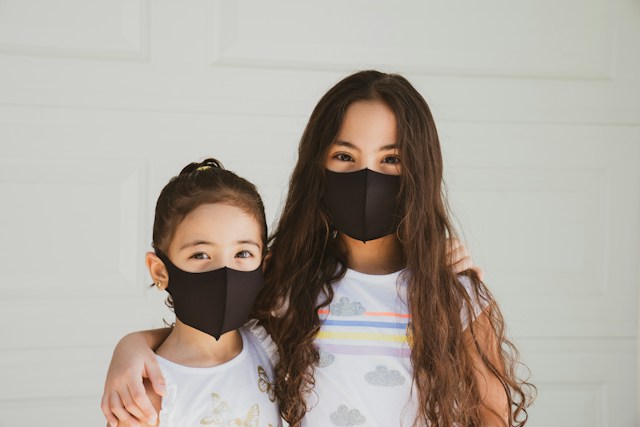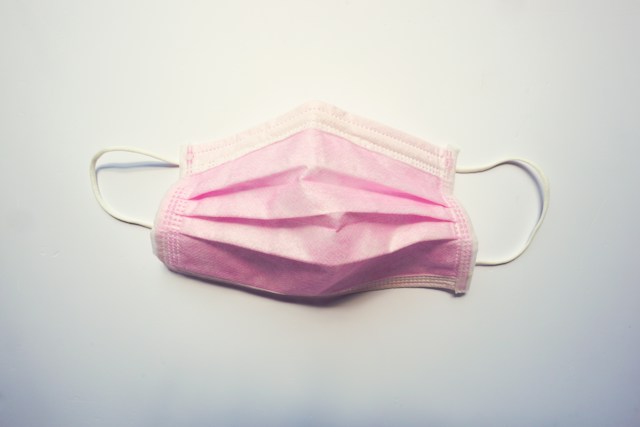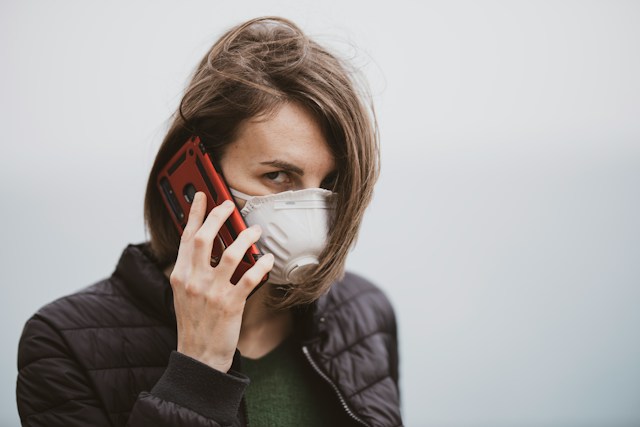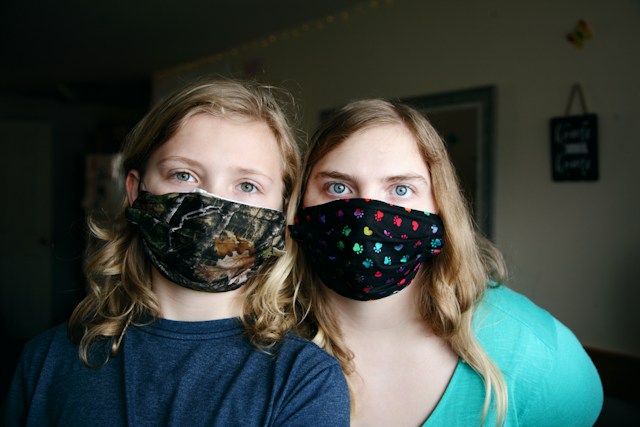10 Interesting & Fun Masks Facts for Kids (2024 Updated)
Face masks have been around for several years, though they have become more popular and important during the Covid-19 pandemic. They have helped prevent the virus from becoming even more widespread, and they have helped people all over the world remain safe and healthy during the worst parts of the pandemic.

In this article, we’re going to take a closer look at some interesting facts about face masks, including some common misconceptions about them. Let’s dive right in!
10 Interesting Facts About Face Masks
1. Face masks don’t make it harder to breathe.

When the World Health Organization first released its Covid-19 guidelines regarding masks, many were concerned about whether wearing a mask would affect their breathing. However, researchers have confirmed that wearing a face mask will not impact one’s ability to breathe properly. Masks do not cause you to inhale less oxygen because they are made from breathable fabrics and materials.
2. Masks don’t affect lung development in children.
Contrary to popular belief, children wearing masks will not prevent their lungs from developing normally due to a presumed lack of oxygen! This is because masks are made from materials that allow oxygen to flow normally through them. Children will be able to breathe properly without inhaling harmful airborne bacteria at all.
3. Face masks don’t trap carbon dioxide in them.

Another common fear that many people have is that face masks trap the carbon dioxide that we exhale inside them. However, as you’ve learned by now, face masks are made from breathable materials. As a result, the carbon dioxide that you exhale will not remain trapped behind the mask. For instance, many surgeons wear surgical masks for several hours at a stretch, and they do not faint or die!
4. Cloth face masks are not as effective as N95 masks.
The reason that cloth masks aren’t as effective as N95 masks is that they are made from woven fabrics, which do not accurately prevent the virus from entering your respiratory system. They are also made in such a way that they do not form a tight seal around the sides of your face, which means that any virus could enter your system.
For instance, if someone sneezes or coughs, the drops that they expel will travel and enter your body more quickly if you’re wearing a cloth mask. However, it’s important to note that wearing a cloth mask can greatly reduce the risk of contracting an infection like Covid-19, and wearing any mask is better than not wearing one at all.
5. N95 masks are not effective against gas or vapors.

While N95 masks are ideal to protect yourself from Covid-19 or other illness, it’s also important to note that they do not protect you from inhaling poisonous gases or vapors. It blocks around 95% of different kinds of particles, like smoke and dust, but cannot filter out the smell of smoke and toxic or poisonous gases. However, it’s worth noting that N95 masks can protect you from bacteria, mold, pollen, airborne allergens, and various aerosols.
6. There was a massive mask shortage in 2020.
It’s interesting to note that in the early stages of the pandemic, there was a massive mask shortage in various countries. For instance, in China, there was an increase in public demand for face masks, and many stores across the country sold out quickly. Many people hoarded masks, causing mask prices to increase rapidly. However, by March of 2020, production facilities in China increased production and began producing 100 million masks every day. Other countries, like the United States and France, spent millions of dollars on producing masks, but failed to replace their stock of masks quickly after running out.
7. Wearing face masks often made people act strangely.

Although governments around the world recommended that people wear masks to protect themselves and the people around them, many people perceived these warnings differently. For instance, in Western countries, wearing a mask often made people think that they were in the presence of sick and infectious people. Additionally, many believed that wearing masks was shameful, so they stopped wearing them at all. Some people also attacked and even killed others for wearing masks.
8. A city in Lithuania held a fashion week for masks.
At the beginning of the pandemic, face masks were manufactured purely for utilitarian purposes. However, as more time went on, fashion brands and smaller designers realized that selling face masks helped boost their sales, so much so that the capital city of Lithuania held a fashion week for face masks. They displayed billboards all around the city with models wearing masks to promote keeping people safe from Covid-19.
9. Face masks have negatively affected the environment.

Since most face masks are disposable and made from plastic, they have led to an increase in non-biodegradable waste. For example, the United States saw an increase in 8 million extra tons of waste. Additionally, the excessive production of face masks all over the world has led to an increase in carbon dioxide emissions, which has accelerated global warming.
10. There are several different types of face masks.

The most commonly used kinds are surgical masks and cloth masks. However, there are various other kinds, including face-covering masks, filtering respirators like N95 masks and FFPs, as well as elastomeric respirators, which are considered to be filtering masks. Some people also used face shields and medical goggles for additional protection, but it’s important to note that those protectants must not replace wearing face masks at all.
Conclusion
In this article, we took you through a list of some lesser-known facts about face masks. Although they can be inconvenient to wear, wearing a mask is one of the simplest and most effective ways to protect yourself from getting infected with a deadly virus like Covid-19. This article also aimed to take you through some common misconceptions about wearing face masks, and we hope you learned something new from it. Don’t forget to stay safe and wear a mask when you go out!
